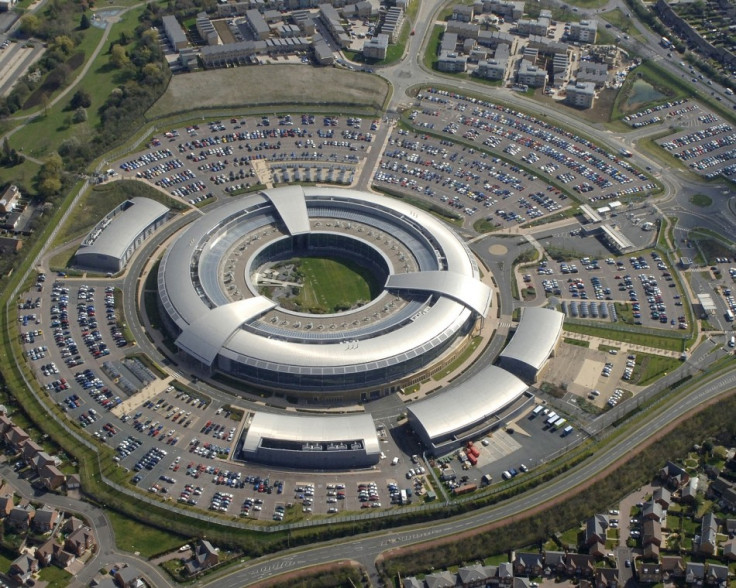Snowden Reveals GCHQ Paid £100m in Secret NSA Donations
The US National Security Agency has paid at least £100m to the UK spy agency GCHQ over the last three years for access to Britain's intelligence gathering programmes.
- £100m paid by NSA to GCHQ over three years
- 7,000% increase in personal data available to GCHQ over five years
- GCHQ wants to "exploit any phone, anywhere, anytime."
- Cabinet Office "unsurprised" by joint venture

The details of the payments were listed in documents seen by the Guardian having being leaked by NSA whistleblower Edward Snowden. The undisclosed payments suggest the American government expects a return on its substantial investment, and that GCHQ must "pull its weight and be seen to pull its weight" to meet the NSA's demands, according to a leaked strategy briefing.
The revelation comes hours after Snowden left the Moscow airport he had lived in since 23 June, having been granted one year of temporary political asylum in Russia. A day earlier Snowden also revealed how the NSA uses a programme known as XKeyscore to view the contents of emails and private Facebook messages of potential targets.
In one document from 2010, the Guardian reveals, GCHQ acknowledges that the US had "raised a number of issues with regards to meeting NSA's minimum expectations," adding that GCHQ "still remains short of the full NSA ask."
The papers show the NSA gave GCHQ £22.9m in 2009, increasing to £39.9m the following year - including £4m to support GCHQ's work for Nato forces in Afghanistan, and £17.2m for the agency's 'Mastering the Internet' project, which is said to gather and store "vast amount of raw information ready for analysis."
Payments also include £15.5m from the NSA to fund GCHQ's sister site in Bude, north Cornwall, which intercepts communications from transatlantic cables which carry internet traffic between the US and UK.
In 2011/12 the NSA paid another £34.5m to GCHQ, the documents reveal.
When asked about the payments, a Cabinet Office spokesman told the Guardian: "In a 60-year alliance it is entirely unsurprising that there are joint projects in which resources and expertise are pooled, but the benefits flow in both directions."
"Exploit any phone, anywhere, anytime"
Snowden warned about the relationship between the NSA and GCHQ, saying the organisations have been jointly responsible for developing ways to harvest and analyse masses of internet traffic.
"It's not just a US problem. They are worse than the US," Snowden told the newspaper.
The documents reveal that GCHQ is spending money on efforts to gather personal information from mobile phones and their applications, and has said it wants to "exploit any phone, anywhere, anytime."
According to the Guardian, "some GCHQ staff working on one sensitive programme expressed concern about 'the morality and ethics of their operational work, particularly given the level of deception involved'."
The amount of personal data made available to GCHQ from the internet and mobile traffic has increased by 7,000% over the last five years. The documents also revealed that GCHQ blames China and Russia for the vast majority of cyber attacks against the UK and the Cheltenham-based eavesdropping headquarters is now working with the NSA to provide British and US militaries with cyber warfare capability.
Fear
According to the leaked documents, GCHQ seems "desperate" to please the NSA, and the US agency does not hold back when it doesn't get what it wants. One one project, GCHQ feared if it failed to deliver it would "diminish NSA's confidence in GCHQ's ability to meet minimum NSA requirements."
In late 2011, a senior GCHQ manager working in Cyprus complained about the lack of staff devoted to a certain programme, saying: "This is not sustainable if numbers reduce further and reflects badly on our commitments to the NSA."
To keep on good terms with Washington, GCHQ reminded its US counterparts that the UK is less regulated than the US. The British agency described this as one of its key "selling points".
These "selling points" were referenced in another document in which GCHQ said by 2013 it hoped to have "exploited to the full our unique selling points of geography, partnerships [and] the UK's legal regime."
A further document added to this theme: "We both accept and accommodate NSA's different way of working. We are less constrained by NSA's concerns about compliance."
© Copyright IBTimes 2025. All rights reserved.






















